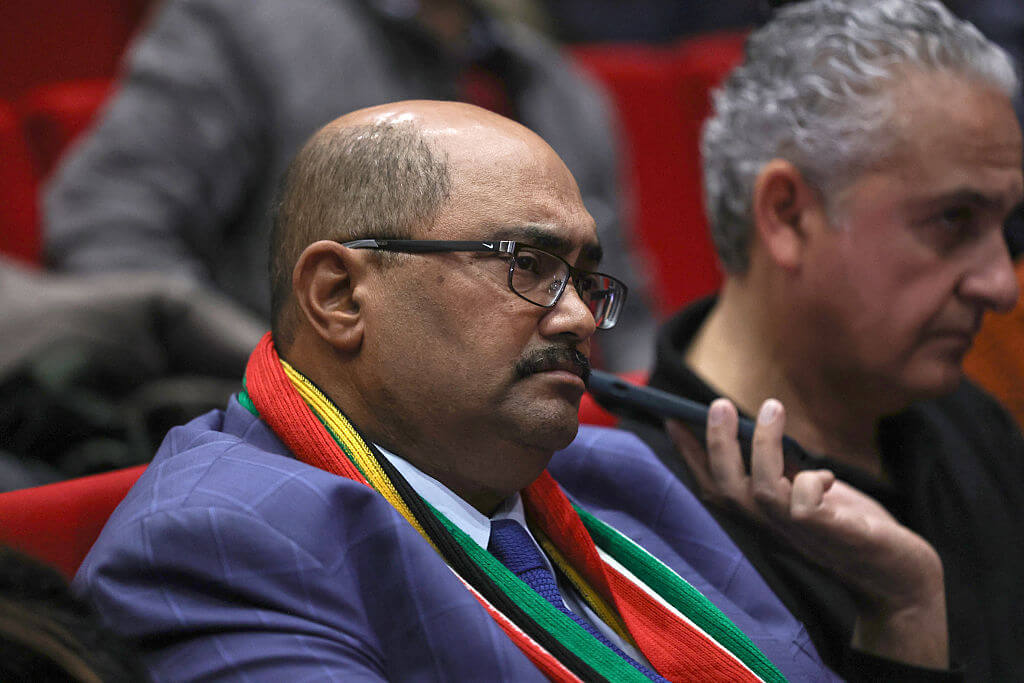Ford Foundation, Big Funder of Israeli NGOs, Pulling Out

Graphic by Angelie Zaslavsky
After being a target for political attacks during the past year, progressive nongovernmental organizations in Israel are now bracing for another hit: the loss of one of their largest donors.
The Ford Foundation, which has provided $40 million to civil society NGOs in Israel since 2003, will not resume its funding for programs in Israel once its current grant round ends in two years. The reason, the organization explains, has to do with changing priorities, not with politics.
But for struggling groups in Israel, losing the Ford Foundation’s financial backing means spending time and effort on developing alternative resources in an atmosphere of growing hostility toward civil society organizations that focus on human rights.
In recent months, the Ford Israel Fund, the foundation’s arm handling grants in Israel, began notifying grantees that funding will not be renewed after the current $20 million grant expires in 2013.
The Ford Foundation, ranked the second-largest philanthropic foundation in America, with assets of more than $10 billion, launched its program in Israel in 2003 as a partnership with the New Israel Fund, which provided the presence on the ground and administered the grants. Prior to this program, the Ford Foundation had given to a broad array of causes in Israel since the Jewish state gained its independence in 1948.
The establishment of the Ford Israel Fund made the Ford Foundation a key player in Israel’s NGO world. The initiative focused its grant making in three fields — advancing civil and human rights, helping Arab citizens in Israel gain equality and promoting Israeli-Palestinian peace. The initial $20 million grant expired in 2008. But the Ford Foundation then followed up with a new five-year, $20 million commitment.
“That initiative wound down successfully,” said Ford Foundation director of communications Alfred Ironside in a statement he provided for the Forward. The statement noted that since 1948, the Ford Foundation’s support for programs in Israel exceeded $70 million, and stated that the foundation will “explore how best to contribute toward democracy and development in the region going forward.”
But the bottom line is clear: The partnership with NIF, which yielded $40 million for progressive NGOs in Israel, is coming to an end. “NIF has grown into a robust and capable independent foundation, and we look forward to seeing it continue to thrive,” the Ford statement concluded.
Aaron Back, director of the Ford Israel Fund, explained that the foundation’s commitments “had never been open-ended.” The new leadership of the Ford Foundation had conducted an across-the-board review of all programs and made significant changes in its priorities, he explained. The foundation’s new president, Luis A. Ubiñas, took office in 2008 after the new grant to Israel had already been approved. Both five-year funding programs were adopted during the tenure of former president Susan Berresford.
“I would obviously want to see this money continue into the future, but the legacy of the Ford Foundation’s work with NIF will continue to be noticed,” Back said. He added that despite the foundation’s decision to shift funds to other purposes, he views the funding program for Israel as a success, thanks to the support it provided to organizations that he sees as having a “hugely important voice,” and to the way in which it helped NIF in becoming “a robust and capable” organization.
The end of the Ford Foundation grants is expected to have a significant impact on NIF. Currently, Ford Foundation grants make up roughly a third of NIF’s donor-advised giving, which reaches $14 million to 15 million a year. NIF’s core giving, however, which totals between $10 million to 15 million annually, will not be affected by the withdrawal of Ford funds.
“This was not a surprise for us,” said Daniel Sokatch, the group’s CEO. Sokatch praised Ford for what he described as the foundation’s “smart philanthropy,” which focused on NGO’s by building their capacities and ensuring their sustainability. Making sure that funds are used for growth and for stabilizing the grantees, he said, did this.
Sokatch put a positive spin on the Ford Foundation’s decision. “There is a compliment here for the civil society sector in Israel,” he said. “This is a sign that they no longer need this kind of support and can stand on their own feet.”
The director of one of those groups, Jafar Farah of Israel’s Mossawa Center, which advocates for equal rights for Arab Israelis, told the Forward he hopes that the Ford grants will no longer be needed by the time they end in 2013. “I hope that by then, Israel will be a real democracy with equality for all,” he said.
But if Farah is unsuccessful in what he calls “changing the reality,” he still expects the Ford Foundation to reconsider its decision to withdraw from Israel. Mossawa owes nearly 10% of its budget to grants from the Ford Foundation.
The Association for Civil Rights in Israel, another Ford Foundation grantee, receives $100,000 a year from the fund, a grant that makes up 3% of its budget. Hagai El-Ad, ACRI’s executive director, said that the impact of the Ford Israel Fund’s loss will not be that great. “Getting notice so early in advance allows us to invest in developing new resources,” El-Ad said. ACRI devoted the money it received from the Ford Foundation in recent years to programs aimed at promoting social justice and fighting economic gaps in Israeli society.
Back believes that most, if not all, grantees will survive the loss of Ford as a funder. “I’d be surprised if any one of them will go out of existence,” he said, adding that he intends to focus his work in coming years on ensuring that grantees develop alternative funding sources for the day after the Ford Foundation pulls out.
The foundation’s decade-long partnership with NIF was fraught with criticism over its choice of grantees and causes, which were mostly on the liberal end of the political spectrum. This criticism peaked after the 2001 Durban conference, where NGOs, some of them funded by the Ford Foundation, backed resolutions equating Israeli policies with those of the South African apartheid regime. In response, the foundation adopted stricter criteria for funding, and despite being blasted by Israelis, it decided to move ahead with the first five-year $20 million grant.
“Ford Foundation has improved their grant guidelines since Durban-I, but there are still concerns with funding practices,” said Naftali Balanson, managing editor of NGO Monitor, a Jerusalem-based watchdog organization that has been a leading critic of not-for-profit organizations that express critical views of Israel.
In the past year, NIF and other NGOs supported by the Ford Foundation came under attack in Israel from politicians on the right and from such organizations as NGO Monitor and Im Tirtzu, which claim that groups support the delegitimization of Israel. The Israeli Knesset passed laws requiring increased transparency of NGO funding and initiated parliamentary hearings targeting these groups.
“Unfortunately, the situation in Israel is troublesome,” Back said, “but I don’t think this should be the guidepost for measuring our success.”
Contact Nathan Guttman at [email protected]

















